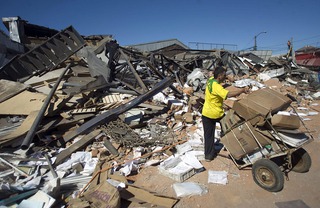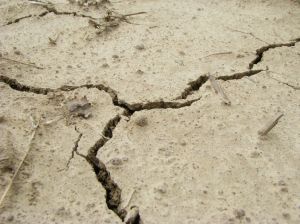Unemployment in Eastern European nations that will join the European Union in May, including Poland, Slovakia and the Czech Republic, may rise from their current near-record levels
Published:
2 November 2003 y., Sunday
Unemployment in Eastern European nations that will join the European Union in May, including Poland, Slovakia and the Czech Republic, may rise from their current near-record levels as companies struggle to compete.
Job cuts ``are crucial to reducing costs and lowering our coal prices so we can compete after joining the EU,'' said Maksymilian Klank, president of Poland's state-owned Kompania Weglowa SA, Europe's largest coal mining company by production, at a Warsaw press conference last week.
The Polish and Slovak second-quarter jobless rates of 20 percent and 17 percent were more than double the EU average of 8 percent, based on figures compiled by Eurostat. The Czech Labor Ministry will probably report today that unemployment was unchanged at 10 percent in September, according to 13 economists surveyed by Bloomberg News.
Voters in the 10 mainly Eastern European countries that are joining the EU were promised that unemployment would fall as companies gain access to new customers and older members open borders to the East. With accession seven months away, governments and many businesses say they expect to trim workforces to survive in an enlarged trading region of 450 million people.
Unemployment has risen in the future EU countries even as growth in the entrants' combined $487 billion economy has outpaced the EU this year.
Average growth in Poland, the Czech Republic, Hungary and Slovakia, the largest of the 10 entrants, totaled an annual 3 percent in the second quarter. By contrast, France and Germany, two of the three largest EU countries, fell into recession.
Šaltinis:
Bloomberg
Copying, publishing, announcing any information from the News.lt portal without written permission of News.lt editorial office is prohibited.
The most popular articles
 The dark spectre of unemployment is stalking Europe and 2010 is the year it has earmarked in the fight against poverty.
more »
The dark spectre of unemployment is stalking Europe and 2010 is the year it has earmarked in the fight against poverty.
more »
 Just about a month after a devastating 8.8-magnitude earthquake destroyed vast swaths of Chile’s south central region, residents in the coastal town of Dichato continue to wait for much needed aid.
more »
Just about a month after a devastating 8.8-magnitude earthquake destroyed vast swaths of Chile’s south central region, residents in the coastal town of Dichato continue to wait for much needed aid.
more »
 The European Parliament will once again mark “Earth Hour” by switching off lights in all its buildings for one hour this Friday and Saturday.
more »
The European Parliament will once again mark “Earth Hour” by switching off lights in all its buildings for one hour this Friday and Saturday.
more »
 Only one in 10 board members of Europe's biggest listed companies is a woman and all central bank governors in the EU are male.
more »
Only one in 10 board members of Europe's biggest listed companies is a woman and all central bank governors in the EU are male.
more »
 New rules in 10 EU countries would let international couples choose which country’s law applies to their divorces.
more »
New rules in 10 EU countries would let international couples choose which country’s law applies to their divorces.
more »
 The EP's Committee on Culture and Education urges the EU to promote non-formal education, combat youth unemployment and help young people with special needs.
more »
The EP's Committee on Culture and Education urges the EU to promote non-formal education, combat youth unemployment and help young people with special needs.
more »
 More than 50 million people in southwest China are struggling to cope with what is being called the worst drought in living memory.
more »
More than 50 million people in southwest China are struggling to cope with what is being called the worst drought in living memory.
more »
 Ideas sought on how to improve train, energy and banking services - a major cause of headaches for consumers in Europe.
more »
Ideas sought on how to improve train, energy and banking services - a major cause of headaches for consumers in Europe.
more »
 The EBRD is supporting the rehabilitation of the water and wastewater system in the city of Aktau, in the Mangystau region of Kazakhstan, with a loan in Kazakhstan Tenge (KZT) equivalent to €5.8 million (KZT 1.2 billion) to Aktau TVS&V, the municipal water and district heating company serving the city.
more »
The EBRD is supporting the rehabilitation of the water and wastewater system in the city of Aktau, in the Mangystau region of Kazakhstan, with a loan in Kazakhstan Tenge (KZT) equivalent to €5.8 million (KZT 1.2 billion) to Aktau TVS&V, the municipal water and district heating company serving the city.
more »
 The world’s biggest St. Patrick’s Day parade bathed New York’s Fifth Avenue in a sea of green.
more »
The world’s biggest St. Patrick’s Day parade bathed New York’s Fifth Avenue in a sea of green.
more »